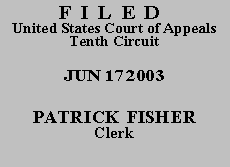

| GARY B. SELF,
v.
FRESENIUS MEDICAL CARE, a
corporation; SOS STAFFING
SERVICES, a corporation |
|
I. Background
On August 19, 2002, Plaintiff-Appellant, Gary B. Self, filed a pro se complaint against Defendants-Appellees, Fresenius Medical Care and SOS Staffing Services Inc., alleging discrimination under the Americans with Disabilities Act, 42 U.S.C. § 12101 et seq. In October 2002, the district court, after noticing that summonses had not been issued, sent Self the necessary forms. The district court advised Self to complete and return the praecipe for summons, two summonses, and two USM-285 forms. Self never completed the paperwork.
On January 10, 2003, the district court dismissed Self's complaint without prejudice for failure to prosecute. Prior to its dismissal, the district court did not issue an order to show cause. This appeal followed.
II. Discussion
We review the district court's dismissal for failure to prosecute for an abuse of discretion. Scott v. Hern, 216 F.3d 897, 912 (10th Cir. 2000). With respect to the time limit for the service of a summons, the Federal Rules of Civil Procedure provide:
Time Limit for Service. If service of the summons and complaint is not made upon a defendant within 120 days after the filing of the complaint, the court, upon motion or on its own initiative after notice to the plaintiff, shall dismiss the action without prejudice as to that defendant or direct that service be effected within a specified time; provided that if the plaintiff shows good cause for the failure, the court shall extend the time for service for an appropriate period. This subdivision does not apply to service in a foreign country pursuant to subdivision (f) or (j)(1).
Fed. R. Civ. P. 4(m). In Espinoza v. United States, we considered the procedure for dismissing a complaint under Rule 4(m):
[D]istrict courts should proceed under [Rule 4(m)] in the following manner: The preliminary inquiry to be made under Rule 4(m) is whether the plaintiff has shown good cause for the failure to timely effect service. In this regard, district courts should continue to follow the cases in this circuit that have guided that inquiry. If good cause is shown, the plaintiff is entitled to a mandatory extension of time. If the plaintiff fails to show good cause, the district court must still consider whether a permissive extension of time may be warranted. At that point the district court may in its discretion either dismiss the case without prejudice or extend the time for service.
52 F.3d 838, 841 (10th Cir. 1995).
In this case, there is no indication in the docket sheet that the district court afforded Self an opportunity to show good cause for his failure to comply with Rule 4(m). Thus, the district court could not have engaged in "[t]he preliminary inquiry to be made under Rule 4(m)," which is "whether the plaintiff has shown good cause for the failure to timely effect service." Id. at 841. Thus, the district court erred under Espinoza.(1)
III. Conclusion
Based on the foregoing, we REVERSE the district court's dismissal for failure to prosecute, REMAND for further proceedings consistent with this order and judgment,
and GRANT petitioner's motion to proceed in forma pauperis on appeal pursuant to 28 U.S.C. § 1915.
ENTERED FOR THE COURT,
Deanell Reece Tacha
Chief Circuit Judge
*.This order and judgment is not binding precedent, except under the doctrines of law of the case, res judicata, and collateral estoppel. This court generally disfavors the citation of orders and judgments; nevertheless, an order and judgment may be cited under the terms and conditions of 10th Cir. R. 36.3.
1. We express no opinion on whether Self would have been able to show good cause. We leave this to the district court on remand.